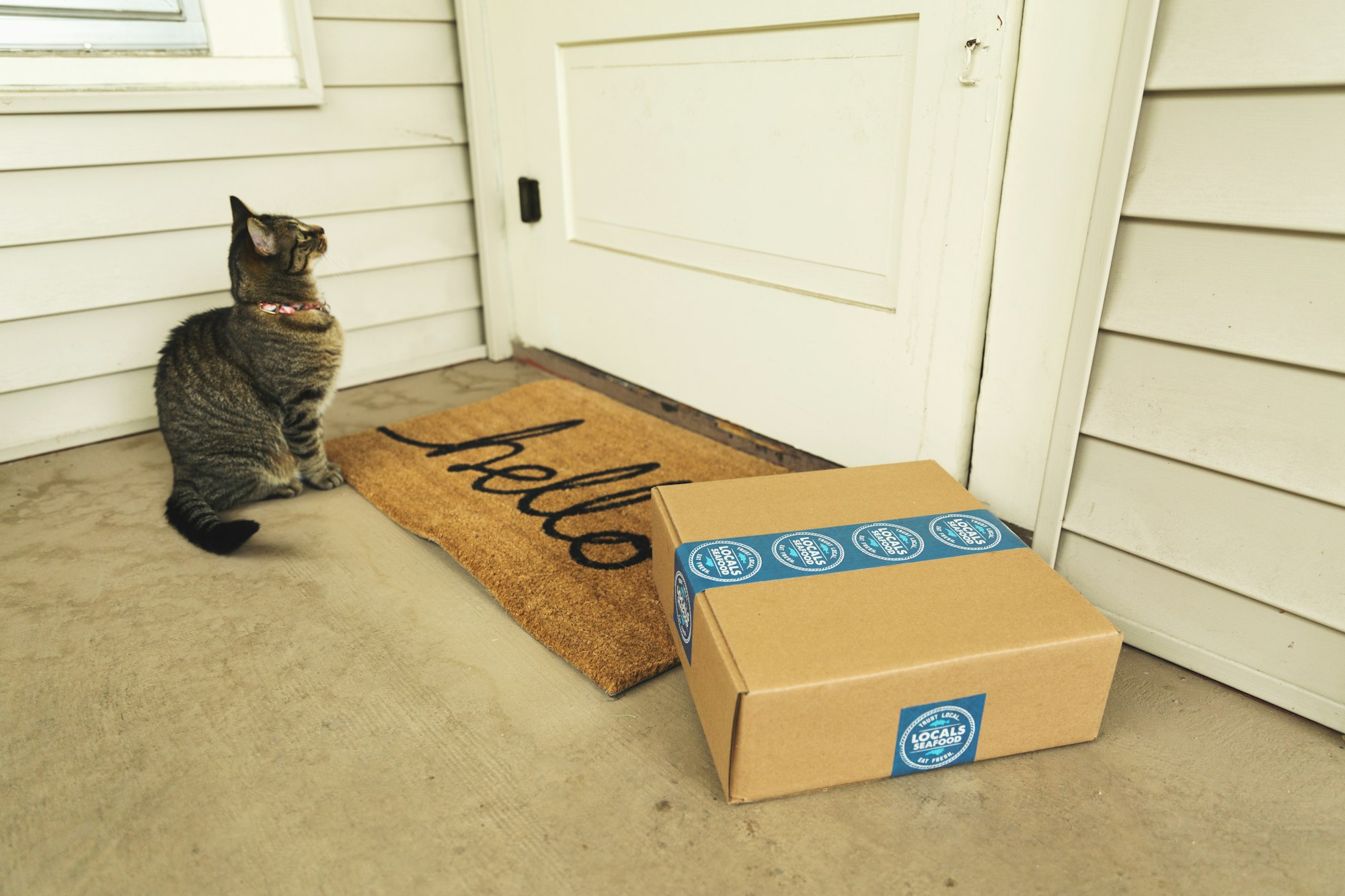Amazon sellers are an inventive bunch, always playing to their strengths to maximize their chances of success. Whether it's spotting emerging trends or skillful product listing optimization, they know their strong suits and play them well. But there's one area where not all sellers are proficient, and it's a crucial one - international shipping and cargo transportation.
The journey of your product from the factory to the Amazon warehouse may not be the most thrilling part of your entrepreneurial journey, but it is indeed one of the most critical, and potentially intricate, components. To aid you in navigating this essential part, we've gathered all you need to know about the role of a freight forwarding company in your Amazon business.
Challenges of International Trade and the Role of Freight Forwarders
Engaging in international trade can be a risky endeavor, especially for novice Amazon sellers. Trade complications can incur significant financial losses, making the process feel like navigating a minefield. A missed document or a shipping delay could mean a loss ranging from $5,000 to $10,000. It is in these areas, amidst the intricacies of shipping, importing, and customs procedures, that the importance of an Amazon FBA freight forwarder truly comes to the forefront.
Think of a freight forwarder as your legal representative in the court of international trade. Their comprehensive knowledge, built through years of experience, helps you avoid any costly errors and keeps your business on the right track.
However, it's crucial to note that having a freight forwarder is not mandatory for conducting business on Amazon. But, if you rely on your supplier to handle shipping logistics, they'll likely engage their own freight forwarder. This could lead to issues as you won't have a direct connection with the forwarder. The consequence? No opportunity to build a relationship and no one to turn to when things go wrong. Therefore, opting for a personalized freight forwarding service can be a prudent decision, as it provides you with a personal contact who genuinely cares about your business.

Decoding a Freight Forwarder
In the Amazon FBA ecosystem, a freight forwarder is an entity that facilitates sellers in transporting their goods from the manufacturing facility (generally overseas) to Amazon distribution hubs. Once your product research is done, a manufacturer is picked, and your first inventory shipment budgeted for, you may feel prepared to start selling.
But there's one more thing you need to ponder about - how to transport your product from its manufacturing location to Amazon's warehouse. Several factors come into play here, including international shipping costs, customs clearance, and even geographical factors like whether your factory is in a distant country like China.
Duties of a Freight Forwarder
A freight forwarder is entrusted with the crucial task of managing your product's transportation over vast distances, which could take several forms:
- Land Shipping: Often an integral part of many Amazon sellers’ supply chain, ground shipping usually involves trailer trucks or trains, with the latter being more popular across Europe. Despite being costlier than sea freight but cheaper than air transport, it's an essential part of transportation, particularly in covering complex routes between a country’s air/sea port and the nearest Amazon distribution center.
- Sea Shipping: This method relies on massive cargo ships to transport products in bulk. Despite being slow, it's often the most economical choice. Two essential packing methods you should know here are FCL (Full Container Load) and LCL (Less than Container Load). FCL refers to a single shipping container filled with products all from one party, making it more affordable and faster at the destination port. In contrast, LCL allows multiple selling parties to share a container, proving useful for maintaining a steady inventory flow and leaner quantities.
- Air Shipping: This is typically the most expensive but also the fastest mode of transportation. If you're an FBA seller who values speed or wants to ship smaller product quantities, air freight shipping might be your go-to choice.
What Services Do Freight Forwarders Provide?
Freight forwarders typically offer a comprehensive suite of services, including:
- Organizing storage and shipping logistics
- Inland transportation tracking
- Export documentation preparation
- Warehousing
- Freight charge negotiation
- Finding storage space
- Freight consolidation
- Assistance with insurance claims
- Customs clearance
- Short term storage
- Product inspections
They essentially act as your 'shipping agent', taking care of all the intricacies of your international shipping needs.
The Benefits of Connections and Cost-effectiveness
The concept of “it’s who you know” holds true in the world of freight forwarding. With their industry connections, freight forwarders can arrange and negotiate with various transportation services, potentially helping you save significant costs. These specialists can provide a trustworthy and efficient carrier for your products, ensuring safe transportation.
Moreover, freight forwarders can help save money on transportation rates, which are known to fluctuate daily. Thus, the value of engaging a freight forwarding company extends beyond their primary services; their relationships in the industry can also bring about significant financial benefits.
Managing Customs and Offering Additional Services
Freight forwarders excel in managing tasks that are essential but can be overwhelming for businesses, such as dealing with tariff documents, shipping paperwork, customs clearance, and compliance classification. Instead of these tasks crowding your calendar, allow a freight forwarder to leverage their expertise and smooth workflow to handle these processes.
Freight forwarders also offer extra services that can ease your shipping logistics. From managing banking paperwork to providing additional insurance policies to protect your products, there's an array of services available. It's always wise to inquire about these services when choosing your freight forwarder.

Estimating Freight Forwarder Costs
The shipping cost of engaging a freight forwarder depends mainly on three factors: the weight of the commodity, the volume of goods (measured in cubic meters or “CBM”), and the shipping route. Keep in mind that certain goods, like alcohol-based products, liquids, and specific batteries, may cost more to ship than others, due to their "dangerous goods" status.
Questions to Ask Your Potential Freight Forwarder
Before hiring a freight forwarder, there are several key questions you should ask to ensure they are a good fit for your business.
- Do they have Amazon-specific experience? The Amazon platform maintains rigorous shipping, packing, and storing guidelines. It's crucial that your freight forwarder is familiar with these guidelines and has a solid track record of working with Amazon-focused clients.
- Do they manage customs clearance? This is especially vital for non-US Amazon FBA sellers. A freight forwarder is typically responsible for customs clearance, and any company that doesn't offer this service may not be suitable for your needs.
- Do they offer insurance? Regardless of the nature of your products, it's important that your freight forwarder offers insurance. This could be for basic loss or damage cost or something more custom to your requirements.
Freight Forwarder Terminology Explained
Bill of Lading (BOL): This document acts as a contract between the shipper and the carrier that accompanies the shipment. It's issued by your freight forwarder and outlines the specifics of the goods shipped.
Export License: This is a necessary document for shipping goods out of China. Although you, as the client, will not directly see it, the freight forwarder needs it to facilitate the exportation process.
Inspection Certificate: This certificate is usually required for specialized products and certifies that the goods have undergone and passed inspection.
Commercial Invoice: This document outlines the exact contents, quantity, and value of the goods being exported from the origin country and imported into the destination country. The commercial invoice is provided by your supplier.
Packing List: This provides detailed information about the shipment, such as the number of boxes, units per box, whether the goods are palletized, etc. This list is also supplied by your supplier.
Special Certificates: If you are shipping items like children's products, medical devices, or anything containing soil or seeds needing USDA approval, you would need to provide specific documentation.
Entry Summary: This is a document provided by US customs after the payment of import duties. It shows the declared value of goods to customs and keeps a record of the shipment. Your freight forwarder will provide the entry summary to you once your shipment clears US customs.
Proof of Delivery (POD): This document is provided by your freight forwarder after the shipment reaches its destination and is signed for. It serves as evidence that the shipment has been successfully delivered.
In conclusion, having a competent freight forwarder could be one of the best decisions for your Amazon FBA business. They not only assist you with your shipping needs but also provide expert guidance to ensure your international trade operations run smoothly.



